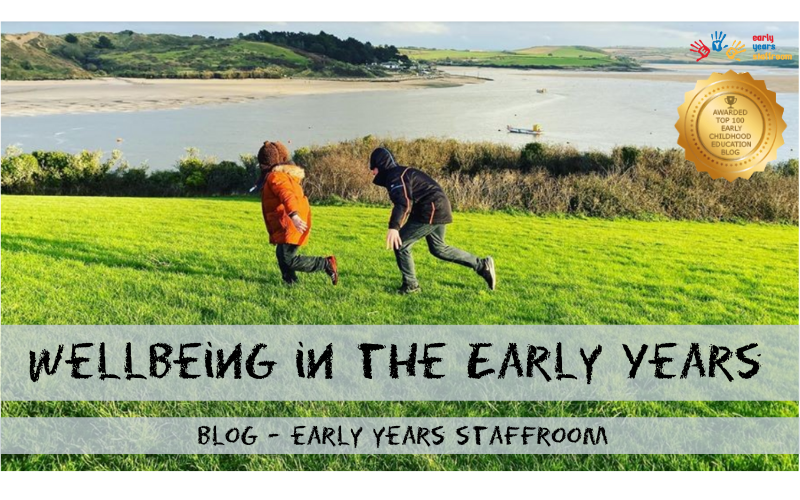
Wellbeing, according to the Oxford Dictionary is the state of being comfortable, healthy and happy.
For children they need their basic needs met, for example; a home, healthy diet, rest and exercise etc. as well as to feel safe and loved, to feel respected, that their opinions matter.
Maslow showed in his hierarchy of needs that without the basic necessities like; food, rest, water, home, feeling safe, love, belonging and self-esteem people would not have the desire to be the best they can be and it is the same for children.
Education and Health are closely linked. There is evidence to show that a strong focus on wellbeing for children gives increased academic achievement ; “Promoting the health and wellbeing of pupils and students within schools and colleges has the potential to improve their educational outcomes AND their health and wellbeing outcomes”. Public Health England 2014.
The EYFS states, in relation to wellbeing (although strangely not mentioning the term wellbeing), that children need; positive relationships with a key person approach which are loving and foster a sense of belonging, are sensitive and responsive to children’s needs, feelings and interests, support independence, set clear boundaries which will make children feel safe, practitioner to keep them physically safe, value and respect children and help children develop a sense of their culture.
Dr Laever, wellbeing and involvement pioneer beautifully describes wellbeing as “…a beautiful stage in which children can be when they feel OK. They feel at ease. They radiate. They are open to anything that comes in”.
It is not only parents who influence a child’s wellbeing but also other important adults in children’s lives for example their teachers. The EYFS highlights that parents and early years practitioners need to work together to promote children’s wellbeing and emotional development.
Early years practitioners can make a real difference by being nurturing and encouraging to all the young children in our care. If we can increase wellbeing in the early years it will help children carry resilience and happiness going forward and most importantly give them the tools to be the best they can be and reach their full potential.
Adapted from Dr Leuvers directed research centre for experiential education (2015)
Adapted from Dr Leuvers directed research centre for experiential education (2015)
It is good practise to record levels of wellbeing and involvement since low levels lead to low levels of learning and high levels lead to high levels of learning outcomes.
It is best to record these at 3 separate points through the year so you can see progress made. The recording involves studying a child for 2 minutes solely focussing on the wellbeing and involvement. There are separate sheets to help record these on the Early Years Staffroom Website.
It is also helpful to note the levels of wellbeing and involvement during your observations but is not always necessary.
According to Laevers, a happy, involved child is one who can experience the world at its fullest. They truly learn from those experiences.
High wellbeing enables learning, without wellbeing children cannot learn. Therefore, wellbeing is arguably the most important aspect of Teaching for Early Years, in fact all years.